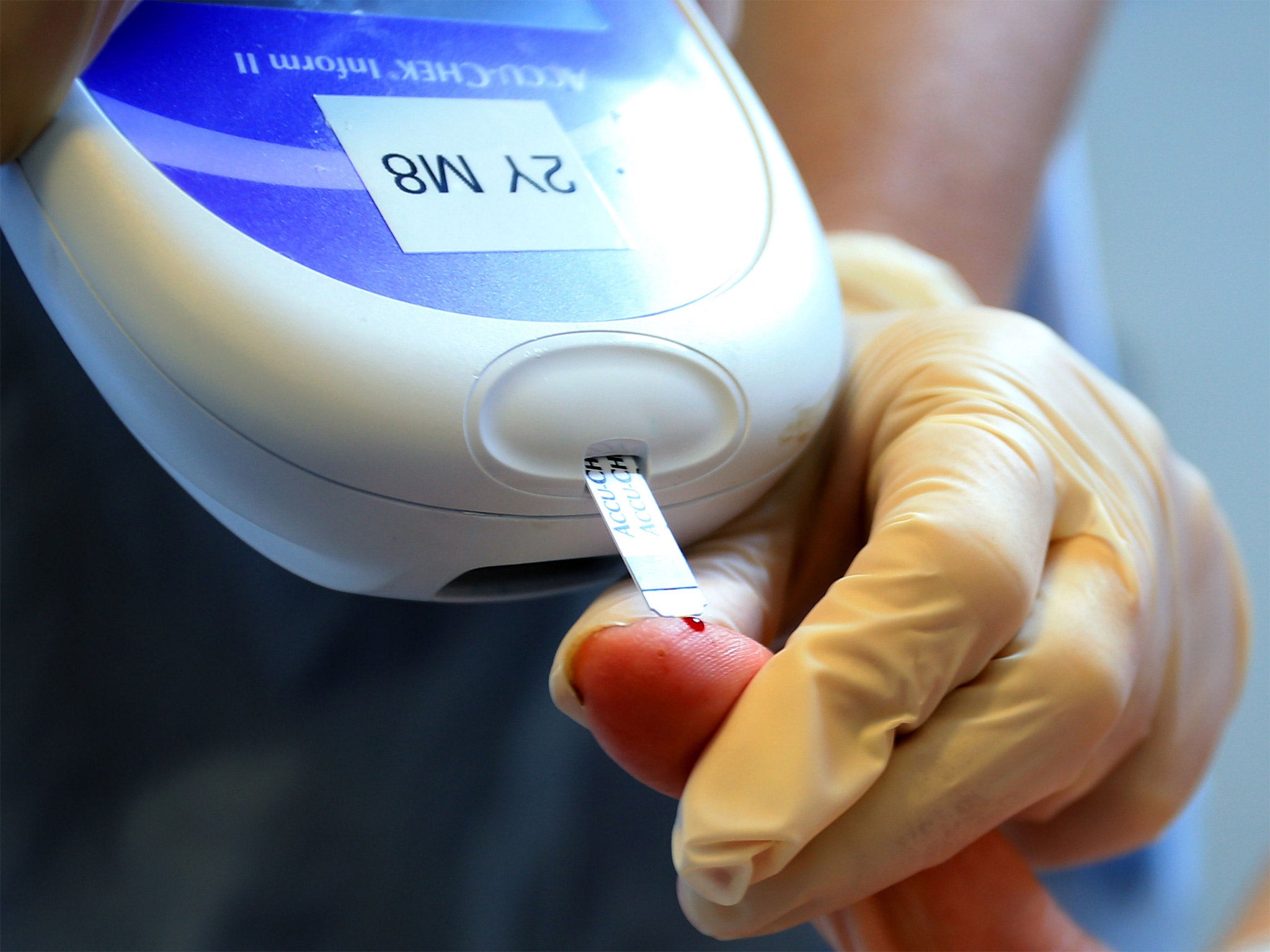Type-2 diabetes: Men turning their backs on simple online test to check if they are at risk
The Know Your Risk questionnaire looks at age, gender, weight, waist measurements and ethnicity, but has so far been used primarily by women

Men are turning their backs on a simple online test to check whether they are at risk of type-2 diabetes despite being more liable to develop the condition.
More than a million people have used the tool, which provides information on a person’s risk of developing the condition, but the majority are women according to Diabetes UK.
The charity developed the Know Your Risk questionnaire along with the University of Leicester and the University Hospital of Leicester NHS Trust. It looks at age, gender, weight, waist measurements and ethnicity to determine someone’s level of risk.
Helen Dickens, Head of Prevention at Diabetes UK, said: “When we analysed who had used the tool we were very interested to see the gender split of users, with a third more women than men going online to find out their risk, despite the fact that men are more at risk of developing the condition. We are therefore particularly calling on men to get online and find out their risk.
“A staggering 11.9 million people in the UK are now at increased risk of developing type 2 diabetes. However the good news is that when an individual knows they are at increased risk they hold the power to keep their risk as low possible by eating well, staying active and maintaining a healthy weight.
“This is why it is so important to get online now to find out your risk of type 2 diabetes and then take any necessary steps to reduce this risk, as not doing so can lead to devastating consequences. Too many people are living with this serious health condition and enduring complications such as amputation, stroke and blindness - a huge human price to pay that could have been avoided.”
The charity urged anyone who finds they are at moderate or high risk of type 2 diabetes to go and speak to their GP or nurse, where further testing can be arranged.
Subscribe to Independent Premium to bookmark this article
Want to bookmark your favourite articles and stories to read or reference later? Start your Independent Premium subscription today.

Join our commenting forum
Join thought-provoking conversations, follow other Independent readers and see their replies